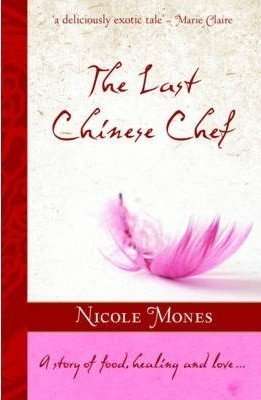THE LAST CHINESE CHEF by Nicole Mones, Review: Delicious escape
Nicole Mones’ The Last Chinese Chef is a delicious escape for foodies and romantics alike.
The Last Chinese Chef Synopsis:
 This alluring novel of friendship, love, and cuisine brings the best-selling author of Lost in Translation and A Cup of Light to one of the great Chinese subjects: food. As in her previous novels, Mones’s captivating story also brings into focus a changing China — this time the hidden world of high culinary culture.
This alluring novel of friendship, love, and cuisine brings the best-selling author of Lost in Translation and A Cup of Light to one of the great Chinese subjects: food. As in her previous novels, Mones’s captivating story also brings into focus a changing China — this time the hidden world of high culinary culture.
When Maggie McElroy, a widowed American food writer, learns of a Chinese paternity claim against her late husband’s estate, she has to go immediately to Beijing. She asks her magazine for time off, but her editor counters with an assignment: to profile the rising culinary star Sam Liang.
In China Maggie unties the knots of her husband’s past, finding out more than she expected about him and about herself. With Sam as her guide, she is also drawn deep into a world of food rooted in centuries of history and philosophy. To her surprise, she begins to be transformed by the cuisine, by Sam’s family — a querulous but loving pack of cooks and diners — and most of all by Sam himself.
Disclosure: If you click a link in this post we may earn a small commission to help offset our running costs.
BOOK REVIEW
Literary aficionados beware — this novel is at times awkward and highly predictable, but like a favourite dessert (one simply looks past the calories), The Last Chinese Chef was a sweet treat that I devoured with gusto.
I rarely say this, but this romantic title is definitely one just for the ladies. But what is refreshing is that protagonist Maggie has already said goodbye to her 30s, and thankfully so too has her love interest!
Did you ever want something so deeply you were scared to let yourself have it? Like a desire so great you know you will never forgive yourself if you fail. So you hang back. And then you wake up one day and you realize if you don’t do it now, it will move out of reach forever.
Sumptuous food writing
But within this addictively sweet plot, Mones’ experience as a food writer really shines through. You do not need to be a lover of Chinese food to enjoy the sumptuous descriptions of dishes featured in The Last Chinese Chef.
While the character Maggie is initially a little close-minded for my tastes, through alternating narrative viewpoints (and flashbacks) of her secondary characters Mones presents the reader with a kaleidoscopic view of China’s turbulent past. She does well to acknowledge the deprivation and stoicism of the people (and the fact that societal issues remain), while celebrating the resilience of spirit and reverence to cultural values.
If you are looking for a delicious, romantic escape look no further than Nicole Mones’ The Last Chinese Chef… and just leave those bathroom (and plausibility) scales for another day!
BOOK RATING: The Story 3 / 5 ; The Writing 3 / 5
Get your copy of The Last Chinese Chef from:
Genre: Romance, Drama, Mystery, Historical
This review counts towards my participation in the Eclectic Reader Challenge 2015.
About the Author, Nicole Mones
A newly launched textile business took Nicole Mones to China for the first time in 1977, after the end of the Cultural Revolution. As an individual, she traded textiles with China for eighteen years before she turned to writing about that country. Her novels The Last Chinese Chef, Lost in Translation and A Cup of Light are in print in twenty languages and have received multiple juried prizes, including the Kafka Prize (year’s best work of fiction by any American woman) and Kiriyama Prize (finalist; for the work of fiction which best enhances understanding of any Pacific Rim Culture). Her most recent release is Night in Shanghai.
From 1999-2008 Mones wrote about Chinese cuisine for Gourmet magazine. Her nonfiction writing on China has also appeared in the New York Times Magazine, the Los Angeles Times, and the Washington Post. She is a member of the National Committee on U.S.-China Relations.

